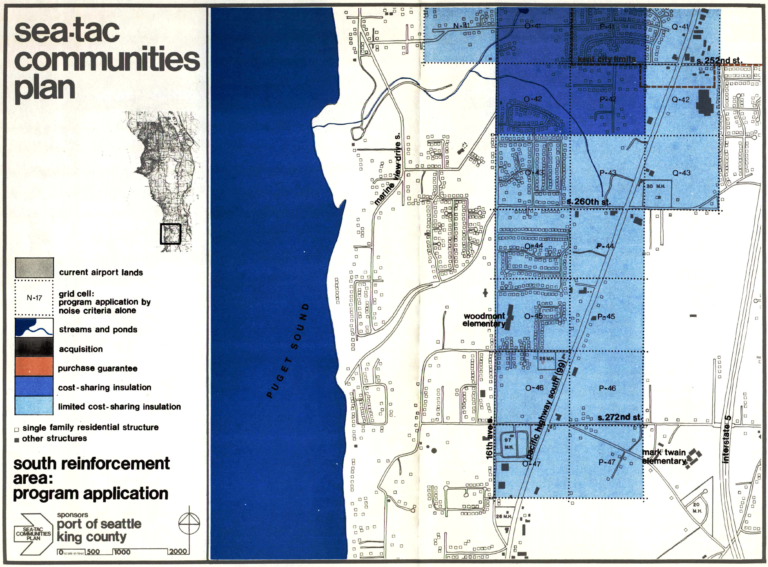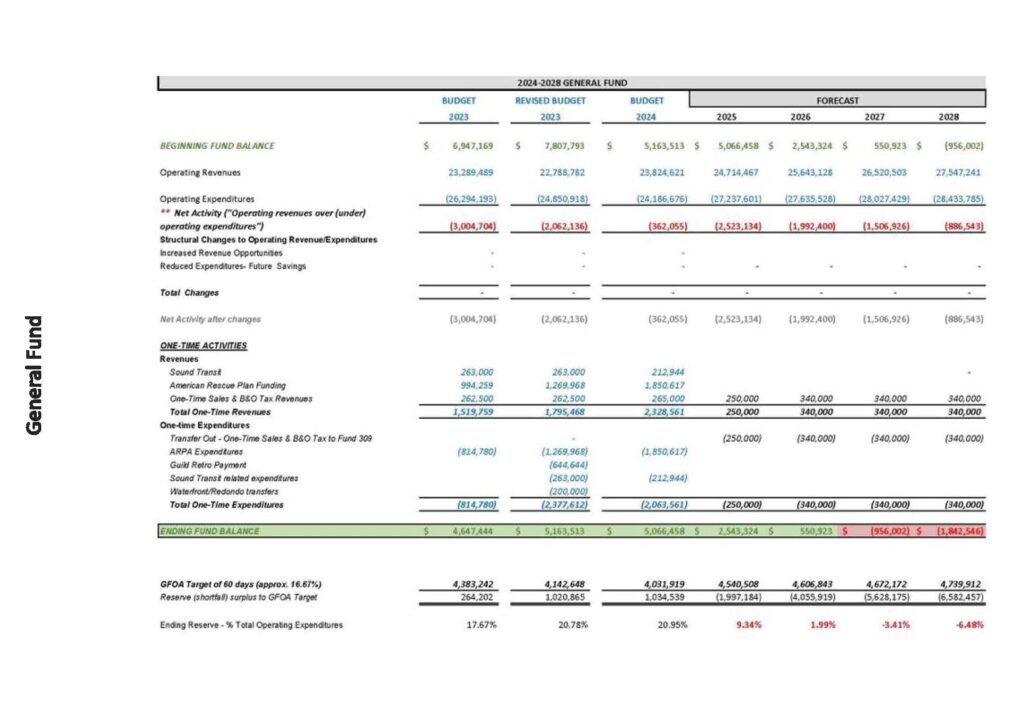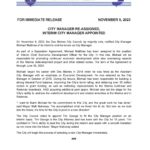I used to joke how I’d never write a 5,000 word New Yorker article. Never say never. Sorry. Not Sorry. I have a standing message for those of you who complain about long articles. But if you don’t read this entire thing, you will not understand what is really going on. And whether or not you agree with my points of view, I really want readers to understand. This Budget meeting was likely the most important of the year. And then there was that other event. Oh yeah, and I got re-elected. Hurray for me. 😀
The Campaign…
…is over.
I’ve tried retrieving as many signs as possible. If you still have one? I want it back! 😀 …er… sorry. What I meant was, “Please call, or msg me to pick it up, with thanks.” 😉
As with last time, the home page was immediately restored to the Weekly Updates and all the campaigning stuff has been removed. That is not an absence of ‘transparency’. It was an attempt to let bygones be bygones and move into 2024 with a clean slate. All campaigns are (or should be) a debate. And when the debate is over, it’s time for everyone to hit the bar. 🙂
Unfortunately, the 1exogenous events of the Council I recount here will make that seem hollow. Believe it or not, before Tuesday’s Executive Session, I fully intended to make a speech committing to more comity over the next four years. But the one thing I asked for in return was… wait for it… fewer surprises.
This Week
Tuesday: Port of Seattle Commission (Agenda) The Port will finalise their 2024 Budget.
Thursday 5:00pm: Public Safety Emergency Management Committee (Agenda) Topics:
- Code Enforcement Update
- Community Crimes Safety
- Summer Events Recap
- Recruiting/Hiring
Thursday 6:00pm: City Council Meeting (Agenda) Some highlights:
- On Consent is an item concerning improvements along the Barnes Creek Trail. Fine. However, this is the umteenth time, we’re voting to not underground utilities. Again, it is official City policy to underground utilities on every new project. In my four years in office we have never done that. In fact, the only time we did so was for a project we did not have to–the alley behind the new Theater, in effect a $300,000 benefit.
 The only item of New Business is a Public Hearing on a street vacation in Huntington Park. Pg. 90.
The only item of New Business is a Public Hearing on a street vacation in Huntington Park. Pg. 90.
Last Week
Tuesday 6:00PM The Council held a Special Meeting called by the Mayor–that is one of his ‘superpowers’ in our current system. He is the only member of the Council that can unilaterally call such a meeting. The sole purpose of that meeting was to hold an Executive Session under 42.30.110(g). There was no other explanation.
(g) To evaluate the qualifications of an applicant for public employment or to review the performance of a public employee. However, subject to RCW 42.30.140(4), discussion by a governing body of salaries, wages, and other conditions of employment to be generally applied within the agency shall occur in a meeting open to the public, and when a governing body elects to take final action hiring, setting the salary of an individual employee or class of employees, or discharging or disciplining an employee, that action shall be taken in a meeting open to the public;
I did not know the purpose of the meeting going in but I objected to it immediately, saying that the mayor should only use this ‘superpower’ in case of a true emergency. Every other ‘performance review’ of the City Manager has required at least a month of prep. This one was also scheduled for 90 minutes (very unusual), and this was the only ES I’ve attended that did not include either the City Manager or City Attorney. So I could guess what was up, but otherwise had no specifics. The meeting was contentious, ran out of time, and another ES was scheduled for the end of the Thursday meeting discussed below. Same topic, people, etc.
Wednesday 6:00PM The Port of Seattle held a webinar on Trees and Land Stewardship. Video Soon! Considering the thousands of trees we’ve lost with airport expansion, this is important. Tree canopy in Des Moines is in serious decline. One of my first meetings of the Council was this presentation from the Green Cities Partnership.
 One concept I struggle to get people to understand regarding the airport is Area of Responsibility. Back in the 1970’s, the Port and FAA and communities were negotiating the entire flight path, ie. mitigation allllll the way south to 272nd Street. For example, some Port Packages were installed to 260th.
One concept I struggle to get people to understand regarding the airport is Area of Responsibility. Back in the 1970’s, the Port and FAA and communities were negotiating the entire flight path, ie. mitigation allllll the way south to 272nd Street. For example, some Port Packages were installed to 260th.
The ‘land stewardship’ the Port is talking about today is limited to Port-owned property, not the areas impacted by the airport–which include trees, water, economics, air, everything.
If the Port confines its tree replacement to Port-owned land they will never come close to compensating the residents of Des Moines for their part in tree decline. Beyond that, confining any discussion of any mitigation to Port-owned land violates the spirit of the original community agreements.
Wednesday 7:00 PM Des Moines Marina Association meeting. They do seem to be dissolving as a non-profit. Basically, the rules governing non-profits (meetings, officers, etc.) have become burdensome. Ironically, they have all the money they need (boaters are OK with sending in dues) but very few boaters turn out for meetings or volunteer to serve. Sound familiar? 😀
As I said last week, this is something to take note of. We are not like other marinas–almost all of which are run as separate businesses on their own land and thus are in no way beholden to any constituency except for their customers. In other words, they sell a service.
Our Marina, OTOH, was created as a public good. It started off like other Marinas–to serve the interest of boaters. But the moment we started building condos a few years later? And then started talking about it as a park? Or maybe as a commercial district? Oy veh.
I’ve been to fifty plus marinas along the west coast. I’ve never visited a marina that tries to do all that stuff simultaneously; certainly not on our tiny footprint.
There needs to be some form of governance and planning to balance those interests and the needs of the rest of the City, ie. the people who never visit the Marina, but pay taxes and need it to not only break even but maximise its potential for the long haul. I’ll come back to that in the meeting recap below.
Again, the City Council needs a standing Marina Committee, ie. a mix of City Councilmembers, boat owners and condo dwellers that meets in public every month. And that way the rest of the public–which has as big a vested interest now as boat owners, can watch and show up whenever they want to.
Thursday 5:00PM Environment Committee (Agenda) (Video) This was actually fairly major. The State has been telegraphing for the past several years that environmental issues of all sorts have to be a bigger deal at the municipal level. This will be onerous, developers will not be thrilled, but it needs to happen. In a nutshell: Science marches on. Every year now, research is making it clear that lots of things previously thought to be safe, are not. We (I mean the City) has a role to play in getting residents and businesses to stop using them, mitigate their negative impacts, or both. As just one example, contaminants like PFAS (firefighting foam used at airports) were not even considered ‘toxic’ twenty years ago. Spoiler alert: it’s totally toxic, it’s all over Sea-Tac Airport, and whatever happens on that plateau affects every water system in Des Moines.
The thing that makes it especially hard for dinky cities like Des Moines is that, obviously our engineers want to do the right thing. But ‘the right thing’ is so stonkin’ expensive that we often have to wait for State/Fed money. Without regulatory authority, it tends to never happen. Thus, the need for air quality monitors. To paraphrase that great environmentalist Tony Montana, First you get the data, then you get the regulation, then you get the money.
Thursday 6:00PM City Council Meeting (Agenda) This was maybe the most ‘impactful’ meeting during my four years. Highlights below…
Saturday: 10:45AM As usual, I attended the Des Moines Memorial Drive Preservation Association Veterans Day Event at Sunnydale Elementary. This year featured a performance by the Highline Brass, which was a great touch, and some words by Des Moines artist Daniel Wend, who created the beautiful signal box covers along Des Moines Memorial Drive.
 The DMMDPA site is worth a look as the organisation goes all the way back to World War I (the origin of Veterans Day); the gorgeous elm trees, and now signal boxes are extremely meaningful history. My hope has always been to integrate all the local historical organisations (Hillgrove Cemetery, Highline Heritage and the Des Moines Historical Society) into one shared program that teaches and preserves the history of the area.
The DMMDPA site is worth a look as the organisation goes all the way back to World War I (the origin of Veterans Day); the gorgeous elm trees, and now signal boxes are extremely meaningful history. My hope has always been to integrate all the local historical organisations (Hillgrove Cemetery, Highline Heritage and the Des Moines Historical Society) into one shared program that teaches and preserves the history of the area.
November 9 City Council Meeting (Part I)
There are two videos to this meeting. Part I is mainly about the 2024 Budget. Then there is the Executive Session, followed by Part II, which is the discussion on the regime change.
Public Comment
As has become common, the comments were great. I, however, was something of a Grinch by raising a point of order that public comment is not a dialogue. It’s intended to be one way. I get how absolutely desperate people are for more public engagement–that’s about 80% of my schtick. 😀
Come to the podium. Register your kudos, or complaints. And if you have a specific concern fantastic! You should expect that the City Clerk will take yer information and follow up promptly. But under no circumstances should public commenters try to engage in a conversation with the City Council.
Trust me. I was ‘that guy’ for a decade. 😀 We’ll get to a better mechanism for public engagement. Promise.
Consent Agenda
Human Services Advisory Funding
Pg 20.
I pulled this item to vote ‘no’ on, as a protest, both to the HSAC process and the budget as a whole. And I’ll refer to my comments or read last week. 🙂 Deputy Mayor Buxton made the same rebuttal she has made before, namely that she is the liaison between the group and the Council and that every Cm can simply talk to her if they have questions. I disagree that entire approach, which does not strike me as a public process. At a minimum, every advisory committee should provide minutes of their meetings posted on the public web site. Full. Stop. That is what we used to do. And then, if one has questions, one can ask the liaison.
Budget Second Reading
The ‘budget’ actually featured five inter-connected votes. Please read last week’s comments which cover a lot of ground as to tax increases, spending priorities, etc.
 As I said last week, the General Fund balance stays at a healthy level for 2024. But only for 2024.
As I said last week, the General Fund balance stays at a healthy level for 2024. But only for 2024.
Bonds sidebar
I asked a couple of questions I already knew the answers to. The first was “can we invest the $25.1 million in bonds we voted for last month.” And the very good answer the Finance Director gave was, “no.”
I asked because last week we learned that the initial phase of dock replacement at the Marina will now not begin until 2025. This may or may not have been foreseeable. But it does make me less thrilled with borrowing so much money so far ahead of time. Does that make me (cough) ‘against’ dock replacement? Of course not. It makes me against borrowing money before we need it. Because if we can’t invest it and we can’t spend it? It’s simply borrowing costs.
Proposed Amendments
There were two Council-proposed amendments.
Ad Hoc Finance Committee: Traci Buxton (passed)
The Deputy Mayor expressed a lot of the same concerns I have about the long term health of the budget. After four years? Glad to see someone is!
But in something of an ongoing theme, she then proposed a surprise solution, from the dais, (without consulting me, of course) which I believe will make things worse; namely an Ad Hoc Finance Committee. ‘Ad Hoc’ means a single-purpose and usually limited term committee.
Ironically, I have been pushing for a standing (permanent) finance committee for several years. I object to most ad hoc committees, which implies reacting to a problem and then, when the problem is solved, moving on. For example, years before I was elected, I objected to the City creating an Ad Hoc Aviation Committee. As (then) Mayor Pina used to say, “The airport isn’t going away. We’re not going away.” Absolutely. Never create an ad hoc committee to deal with a permanent challenge.
Our City Council had a standing Budget Committee for many years. It was a good thing and that is what I support because budgeting is not a reactive process; it is something that needs ongoing expertise and attention. (Which is why we should have created a permanent Aviation Committee. And why we should also create a standing Marina Committee.)
What made my hair stand on end was the notion of bringing members of the public onto such a committee, supposedly to improve ‘public engagement’. I disagreed strenuously for several reasons.
- The City budget is complex. It takes a good while to learn to understand it–and municipal accounting is not like for-profit corporate accounting.
- The current presentation is 100 pages. If it contained the level of detail necessary to answer the kinds of questions the public routinely asks about? It would actually be closer to 160. And no, I didn’t just pull that number out me arse. That’s one of my goals–more detail, more clarity for the layperson. But we’re not there.
- And that presentation changes every time we get a new finance director. I’ve been studying our budgets for years and I still have occasional challenges comparing ‘apples to apples’ because we’ve changed accounting systems and reporting systems so many times. And remember: I used to write this crap for a living.
- This is not an emergency! The City Manager was quite correct, if a bit hi-falutin’, in calling the current situation the result of an ‘exogenous event’ (the pandemic.) We need a Finance Committee not as a reaction to some ‘crisis’ but just because we needed one all along. (See discussion of Event Planning below.) The irony is that I’ve been trying to speak about this for years. And my colleagues, who praised Mr. Matthias to the skies, only a few weeks ago, now seem in a dither to take action! Absolutely not. The path forward, as it always shoulda been, is to take a measured, long game approach–the one I’m sure my colleagues thought we had been taking all along under Mr. Matthias’ guidance.
- The purpose of a Finance Committee should be a bit different from other committees. Like other committees, you want three Cms who have ongoing expertise on budget presentation. And in its good variant, it would work on making it easier for the full Council to understand spending challenges (See discussion of Event Planning below.) But in its bad variant, it could become a place where three Cms end up driving decisions on the entire budget for the full Council. It could easily make the Council less transparent–as happened with the Ad Hoc Rules Committee last year.
- And most importantly: the budget is one of only a couple of tasks explicitly mentioned by State law for a City Council. Passing a budget is the fiduciary responsibility of the City Council. We seven are legally responsible, both to the State and to voters.
local government investment pool Sidebar
My second rhetorical question involved a number the F/D mentioned: the fact that we derive $75,000 in investment revenue via something called LGIP, which you can read about here. (Note that the Treasury is run by former 30th Representative Mike Pellicciotti.) This is one of those in the weeds reasons why, as much as I value public input, I would not want un-elected residents engaged in a Finance Committee. There are simply too many acronyms involved in our budget, LGIP, REET1 (and REET2), WSIC, and on and on… It’s hard enough getting electeds up to speed on all this stuff. You can’t get anywhere on policy if you spend each meeting asking staff to re-educate the public on this level of minutiae.
The public has an essential role in expressing their needs, wants, and desires. But at some point, you have to leave it to the subset of people who are either paid or elected to put those ideas into action.
Beyond that, as I said, this is the Deputy Mayor’s third major ‘from the dais’ solution to a problem I’ve tried to raise since my first year. Others include:
- Communications Consultant Plan: After three years of avoidance, we hired Consor rather than simply fix obvious problems like the web site–or the fact that we can’t seem to record sound at City Hall for a Citizens Advisory Committee meeting.
- Ad Hoc Rules of Procedure Committee: The process was not recorded. The things that needed fixing were not fixed. The things that were changed made the City Council less transparent. Full stop.
None of these were presented with any detail; they were all presented from the dais with the notion that we’ll work out the details later. No such proposal should be presented for an up/down vote in a single meeting.
Then there are the other surprises, like the Hotel at the North Parking Lot of the Marina in 2022, and of course, this week’s NEW CITY MANAGER! 😀 And then there’s one other I’ll mention in a seccy poo.
But they are all premeditated, not true public/group decisions, and aside from the fact that I resent the back room quality so deeply, what my colleagues don’t seem to understand is this: a sincere public process–where the real debate happens out in the open in a deliberate manner, leads to better outcomes.
$100,000 IT Budget (Harris) Failed
I proposed allocating $100,000 from the City Manager’s department for IT expenses, ie. a web site, a phone app, remote A/V equipment (so we can record meetings at places like Highline MAST or the Senior Center or the Police Station, and to, once and for all, develop a proper Zoom system for City Hall so that residents can participate in meetings remotely. These are tasks that the public has wanted for years and require no deep discussion–as I said from the dais, if the Communication Consultant does not recommend these spends? The City should demand its money back. But the fact that the Council won’t vote to allocate the money now tells me about some values.
The argument that ‘we can amend the budget later‘ seems specious. Shouldn’t we nail down a budget now? To say that you can amend the thing whenever makes the entire budget process feel even less disciplined.
I was chided for not knowing where to obtain the money. That is not a super-great argument because, unlike salaries for police, which we definitely should weigh in on, IT spending is one-time money. It is customary to leave the where on smaller spends to the City Manager. If he had said ‘impossible’, that would have been one thing; but he was asked and did not say so. However, if we had a standing Finance Committee, we would already have a detailed list of departmental spends (like, oh… I dunno… ferry consulting contracts 😀 ) to make ‘suggestions’. 🙂
Event Planning/Enterprise Fund
The idea here is to create an Enterprise Fund (a free-standing business inside the City–like the Marina) to run all event planning. I’m not precisely sure how that is being defined (concern #1.) But all that aside? Great idea. No, really, it’s a good idea. 🙂 But again, Again, AGAIN, it’s being rolled out in a very bad way.
Everyone can see that we’ve not done so great in event planning for a very long time. The most visible issue is an ongoing conflict with Destination Des Moines. But the real problem (to my mind) has always been our accounting system, which has made it extremely difficult to determine how truly profitable many things are.
(This gets into the weeds, but one of my management rants since we got our new accounting system has been ‘project codes’. ie. I’ve wanted every revenue and expense, whether its at the Marina or the Beach Park or the Field House or the Senior Center or Redondo or wherever, coded so that we could go back and determine the profitability of everything from Food Trucks to EATS to whatever. If we’d had that in place years ago we could have seen a lot of these challenges a long time ago.
We could also use that approach to determine the efficiency of basically every aspect of the City. The new accounting system allows for this and reason #124 I wanted a Finance Committee was to help push that forward with all due speed. I am about 100% certain that if we could monitor project costs better we’d find many other cost savings.
I appreciate the F/D diving into this. My hope is to help make it easier for his team to do more of that kind of work going forward across the entire City.
But for me, the real question is not the money we’ve been losing. The question is: How do we make more of it?
What we’re doing is borrowing $750,000 from our storm water account to fund this new business. But… we have no business plan. And we have no employee in place to run it. And we have no analyses as to how much money we might make. It’s just like the Ferry. We’re just plowing ahead with assumptions.
I favoured hiring someone to do that analysis and create the business plan first. Then borrow the money. Given the fact that we’re already going through a leadership change why add this new, unclear process to the mix now?
In a highly unusual vote, both related items (the Enterprise Fund and the loan to power that fund) were approved 4-3, with Harris, Achziger and Buxton voting ‘no’.
New Items for Consideration
I proposed setting another Special Meeting under that same RCW 42.30.110(f), except note the (f). That paragraph reads:
To receive and evaluate complaints or charges brought against a public officer or employee. However, upon the request of such officer or employee, a public hearing or a meeting open to the public shall be conducted upon such complaint or charge;
Because I have no superpower, it required three votes to put that on an agenda. The proposal failed.
I wanted to go on record, before the Council made a change (see below), that I have multiple complaints as to the way the City Manager conducted his office. I mentioned only one from the dais after the ES, the whole Hotel at the Marina North Parking Lot deal.
Executive Session
There was an ES, which followed onto Tuesday’s work. You know the outcome, which was discussed and voted on immediately thereafter. I just want to say, Juan Mo Time, that I objected to this second ES as strenuously as I did the Tuesday meeting.
At the end there was an Executive Session, which is basically a follow-on to the Special Meeting held on Tuesday 11/07. And if you follow politics here at all you already know the outcome.
 Michael Mathias, hired in 2014 as Economic Development Director, elevated to City Manager in 2016–while retaining the post of EDD, is out. But was immediately offered a new single post as EDD, through June 30, 2024. The idea is to provide ‘continuity’ on the Marina Steps.
Michael Mathias, hired in 2014 as Economic Development Director, elevated to City Manager in 2016–while retaining the post of EDD, is out. But was immediately offered a new single post as EDD, through June 30, 2024. The idea is to provide ‘continuity’ on the Marina Steps.
City Attorney Tim George will retain his current role (with a pay raise) and become Interim City Manager for that same six month period.
The one question people seem to have is “How much money does everyone get?” Because it was raised in ES, the issue can’t be discussed until the contracts are signed. Nice, right?
Post-Executive Session
No ouster
There was a story in the Waterland Blog entitled Des Moines City Manager ousted by Council. According to the Cambridge Dictionary, ‘oust’ is defined as “to force someone to leave a position of power, job, place, or competition.” That is definitely not the word I would have chosen.
To understand why, let’s go back to the complaint I tried to raise before the Executive Session. this requires an ‘explainer’. Read carefully.
The moment Mr. Matthias stopped being City Manager, the Council lost our best leverage to hold him to account for any actions as the City Manager–including the fiasco with the Hotel at the North Parking Lot of the Marina. Why? Because he’s no longer City Manager. Now he works for the new City Manager.
We’re basically paying Mr. Matthias the same money we would have done if we had simply let him go. But by giving him the title of EDD (with an emphasis on the Marina Steps) he will continue to do work that is already in process.
However, a major concern I have is that this transition, structured as it is, and done as it was, will have the practical effect of limiting any accountability for various actions taken during that tenure.
As Mahoney and Buxton acknowledged, someone has been discussing this for a while. Well played.
Not exactly a Sunk Cost Fallacy
One stated benefit of this new scheme is that we will be saving money by not having to backfill a position. In other words, although we’re ‘hiring’ a new EDD, we’re doubling up (again) on City Manager by having Mr. George continue as City Attorney. So this saves the City money on both Mr. Matthias’ and Mr. George’s contracts.
To my mind, this is a variant on one of the worst myths in decision making: 1the sunk cost fallacy. The notion being, “It would be foolish to pay an onerous severance package when you can keep the person on for a transition period and gain the utility of their labours. Win. Win!
No. Consider you’re the owner of a sports team. If you find that the coach of your team has not been taking you where you want to go, the smart play is to cash out immediately, and change direction, regardless of the severance cost. Always. But that assumes that your primary goal is winning. Some team owners will care more about the short term cost savings.
Either approach has merit depending on one’s goals. But statistics says that you cannot have it both ways.
But anyone who continues to believe that the primary value of Mr. Matthias’ service was his expertise in EDD would certainly disagree with the above. As I said, as early as 2020, I did not agree with that and therefore I feel it is exactly backwards having him remain at that position while putting someone new at the helm.
I’ve put numbers to this assertion and I’ll come back to that soon, but this article is already longer than many Russian Novels. But let me repeat something I said as early as January, 2020: I never felt that Mr. Matthias was overpaid; at least, not if you buy the idea of having a ‘two-fer’, a City Manager and an EDD in one body. However, I never bought into that concept. I did not (and do not) believe in that two-fer concept. Instead, I simply argued for doing the conventional thing: one specialist, giving 100% effort, at one job, at a fair salary. 🙂
The search is on
An important tweak to something in the City’s press release. Though the term of the Interim City Manager is six months, the Council did not direct the new Interim City Manager to conduct a formal or external search for a new City Manager, that is implied. That may seem to be hairsplitting, but it’s not. The Council may explicitly direct that action, or it may not. It is entirely possible that the majority offers the Interim City Manager the job of for-realz City Manager–just as happened with Mr. Matthias in 2016. That was one of about nine reasons I voted against these changes. Here’s another.
The appearance of Conflict
The City Attorney exists to provide legal counsel to both the City and the City Council. It’s one of the gray areas in our type of government (Council/Manager.) To avoid the appearance of conflicts, in many cities, the City Attorney is kept somewhat independent of both the City Manager and the City Council on the ol’ org chart. But in Des Moines, the City Attorney report(ed) directly to the City Manager. There was never a time where I could ask the City Attorney a question without our City Manager’s approval. I considered that approach unethical. So now, the City Attorney, the one position that is supposed to provide independent advice to the Council, is also the one employee we’re supposed to oversee? What could possibly go wrong?
Although I tried to find current examples of Council/Manager Government where a City Manager is also City Attorney, I could find none. And since everything happened so fast, there was no time to do that research. That is a feature, not a bug of these surprises.
One more suprise!
As I said above, I had one more ‘surprise’ to discuss. Just like the Hotel in the Marina North parking lot. Just like the Ad Hoc Finance Committee. Just like the Ad Hoc Rules Committee. Just like the Communications Consultant. The last three being sponsored by Deputy Mayor Buxton.
Here’s one more surprise for the road.
Earlier in this meeting, Vic Pennington had announced his resignation from the Council (why he’s still on the dais, but in another seat is another story.) Anyhoo, the discussion then turns to a City Manager pay raise of five percent, which was considered quite large. And during his speech in support of the item, Mr. Pennington pulls a piece of paper out of his pocket and proposes, an eighteen month severance package for Michael Matthias.
At that meeting, the majority was candid in saying that this extended severance package was done explicitly to make it difficult to replace Mr. Matthias.
During the 9 November meeting, the Deputy Mayor called attention to her speech at that same 2020 meeting and once again, ironically, I actually agreed with her words. As I said above, my opposition to Mr. Matthias’ was strictly on performance, never personal.
Surprise!
Many meetings seems to have some ‘theme’ and this one was SURPRISE! That is another cultural issue here that residents have complained about for many decades.
Regardless of whether my colleagues agree with me or not, all of us get the ‘optics’. No one is tone deaf. But if one is on the dais, the more the public complains, the more ‘heroic’ it can seems to listen stoically–and continue doing so much of the real business in private. This approach comes across as deeply patronising to so much of the general public and for that reason alone needs to change. In other words, there is nothing heroic about it.
The fact is, I often agree with my colleagues on policy issues–or at least within distance of a reasonable compromise.
But the culture of ‘surprise’, not only ruins public perception, it often ruins the implementation. These surprises prevent research, measured deliberation, oversight and most of all… compromise. One of my many failures has been my inability to convince either my colleagues or the administration.
Regardless of any other policy goals I may have, if we could make measurable progress on this one thing: compromise instead of surprise, I would consider my second term a success.
1One of my little in-jokes. Keep reading.
2Not exactly. But that term is close enough for this discussion.




Given the only other obvious options for interim city manager – the newly minted assistant city manager or the CAO – I’m totally OK with having the city attorney warm the seat until an ethical, open-to-transparency manager can be hired.
Another problem with decision making in Executive Session is that other options–which would be obvious if discussed in the open, become very difficult to even mention.
I know you’d have liked to be included in everything that has transpired, but sometimes you just CAN’T (a number of reasons, but mostly because you’ll tell EVERYONE, right?). You have to learn to be OK with that. If you can determine when and how to exercise discretion, perhaps you will – eventually – be trusted. Gotta earn that and I don’t think it’s likely, not with this group. Too much water under the bridge.
What kills me are the number of people who read what I write. Benefit from it. But would advise me to behave in some other way to be more ‘successful’ politically. 😀 One earns everything one needs to be a full member of any body by virtue of getting elected. Full stop. Regardless, the primary benefit of conducting these processes in an open venue is not ‘democracy’. Rather it is because doing so improves decision making. There are a bajillion case studies which bear that out across every organisational domain: military, business, etc. Clearly I have failed to express that effectively. Almost -no- decision process is improved by being done outside of rigorous, open academic debate, and that is the culture I am trying to promote. Simply because it works better. Best.
Thank you very much for another informative weekly letter. I am very grateful we have your expertise and watchful eye in Des Moines.
Thank -you-. I am sorry I was unable to speak with you personally during my campaign. I would, of course, be happy to do so anytime.